Yes, a car battery can suddenly die due to several factors. Overcharging, parasitic drains, and extreme temperatures can lead to sudden battery failure. Additionally, the battery’s age and corrosion can affect its performance. Regular maintenance and checks can help prevent sudden battery death.
I’m excited to dive into a topic that’s close to my heart and crucial for every car owner out there – car batteries. Now, I’ve spent a good chunk of my life tinkering with cars, and I’ve seen my fair share of car troubles. But there’s one question that seems to pop up more often than not – “Can a car battery just die suddenly?”
Well, I’m here to tell you, yes, it absolutely can. Over my years in the garage, I’ve seen batteries give up the ghost without a moment’s notice. It’s like they’re in the prime of their life one minute, and the next, they’re gone. But why does this happen? What causes our trusty car batteries to suddenly call it quits?
In this post, I’ll be sharing my insights and experiences on this topic. We’ll explore the reasons behind sudden battery death and how to prevent it. So, buckle up and get ready for an electrifying ride into the world of car batteries!
Can A Car Battery Just Die Suddenly?
Yes, a car battery can die suddenly due to various factors. This abrupt failure is often due to a phenomenon known as “sudden death,” which can occur without any apparent warning signs.
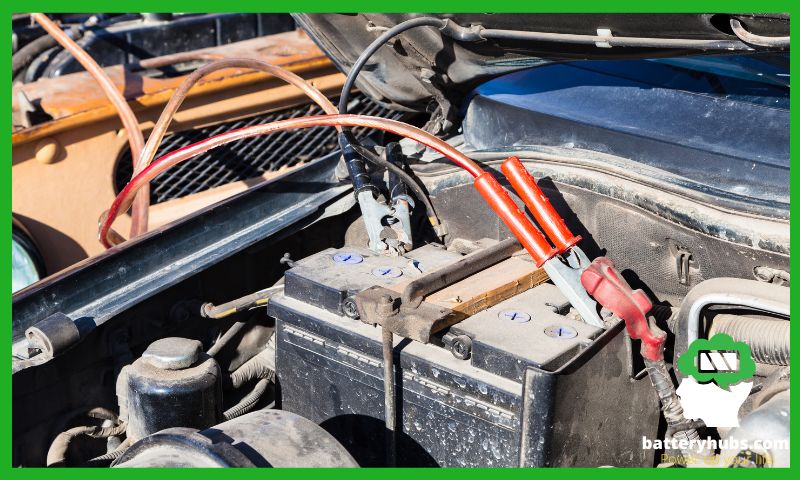
Explanation of sudden car battery death
Sudden car battery death is a situation where a battery that was functioning normally suddenly fails, leaving the vehicle unable to start. This can be quite surprising and inconvenient, especially if the vehicle was running fine just moments before.
The sudden death of a car battery can be attributed to a number of factors. One of the primary reasons is the natural degradation of the battery components over time. As the battery ages, its ability to hold a charge diminishes, and it may eventually reach a point where it can no longer provide enough power to start the vehicle.
Another common cause of sudden battery death is extreme temperatures. Both very high and very low temperatures can have a detrimental effect on a battery’s performance. High temperatures can cause the battery fluid to evaporate, leading to damage to the internal structure of the battery. On the other hand, extremely low temperatures can cause the battery fluid to freeze, which can also lead to sudden failure.
Factors contributing to sudden battery failure
Several factors can contribute to sudden battery failure. These include:
- Age of the battery: The older the battery, the more likely it is to fail. Most car batteries last between 3 to 5 years. If your battery is within this age range, it may be at risk of sudden failure.
- Poor maintenance: Lack of regular maintenance can lead to battery failure. This includes not keeping the battery clean and not ensuring that it’s properly charged.
- Extreme temperatures: As mentioned earlier, both high and low temperatures can lead to battery failure.
- Electrical drain: If something in your vehicle is causing a drain on the battery when the vehicle is off, this could lead to sudden battery failure. This could be something as simple as a light left on or a more complex issue like a problem with the vehicle’s electrical system.
- Physical damage: If the battery has been physically damaged, this could lead to sudden failure. This could be due to an accident, improper handling of the battery, or even just the vibration from normal vehicle operation over time.
In conclusion, while a car battery can indeed die suddenly, regular maintenance and being aware of the factors that contribute to battery failure can help prevent this inconvenient situation.
What Causes A Car Battery To Die Suddenly?
As someone who’s spent years tinkering with cars and batteries, I can tell you that there’s nothing more frustrating than a car battery dying suddenly. But why does this happen? Let’s dive in.
Overcharging and its Effects on battery health
Overcharging a car battery can lead to serious damage. When a battery is overcharged, it can cause the electrolyte in the battery to evaporate, leading to a condition called “thermal runaway.” This can cause the battery to overheat, potentially leading to a fire or explosion. Overcharging can also cause the battery plates to corrode, reducing the battery’s lifespan.
Parasitic drains and their impact on battery life
Parasitic drains, or loads, are components in your car that continue to consume battery power even when the car is off. These can include things like the car’s clock, alarm system, or radio presets. If these drains are too large, they can deplete the battery over time, causing it to die suddenly.
The role of the alternator in battery charging
The alternator plays a crucial role in keeping your car battery charged. It converts mechanical energy from the engine into electrical energy, which is then used to recharge the battery. If the alternator is faulty, it may not be able to properly charge the battery, leading to a sudden battery death.
The impact of short, frequent drives on battery charging
Short, frequent drives can be hard on your car battery. This is because the battery doesn’t have enough time to fully recharge between trips. Over time, this can deplete the battery, causing it to die suddenly.
The effect of extreme temperatures on battery life
Extreme temperatures, both hot and cold, can have a significant impact on battery life. Cold temperatures can slow down the chemical reactions inside the battery, reducing its ability to deliver power. On the other hand, high temperatures can speed up these reactions, leading to faster battery wear and potentially causing the battery to die suddenly.
The Influence of battery age and Corrosion on battery performance
Finally, the age of the battery and the presence of corrosion can also lead to sudden battery death. As batteries age, their performance naturally declines. Additionally, corrosion on the battery terminals can interfere with the battery’s ability to deliver power, potentially causing it to die suddenly.
In conclusion, there are many factors that can cause a car battery to die suddenly. By understanding these factors, you can take steps to prolong the life of your car battery and prevent sudden battery death.
How To Prevent Sudden Car Battery Death?
As someone who’s been around the block a few times with car batteries, I can tell you that preventing sudden car battery death is all about regular maintenance and being mindful of your car’s electrical system. Let’s dive into some of the key areas you should focus on.
Regular Battery Checks and Maintenance
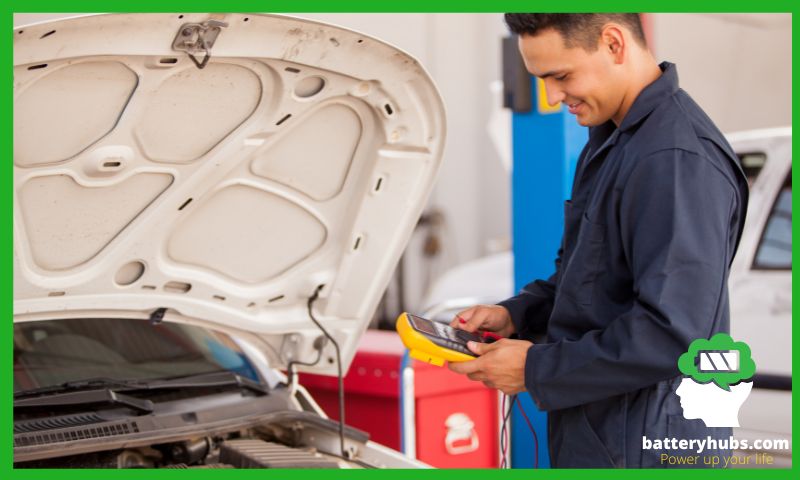
Regular battery checks are the first line of defense against sudden battery death. I can’t stress enough how important it is to keep an eye on your battery’s health. This includes checking the battery’s voltage, looking for signs of corrosion, and ensuring the battery terminals are clean and tight. According to the experts at BatteryStuff, a well-maintained battery can last up to 6 years!
Ensuring the Alternator is Functioning Properly
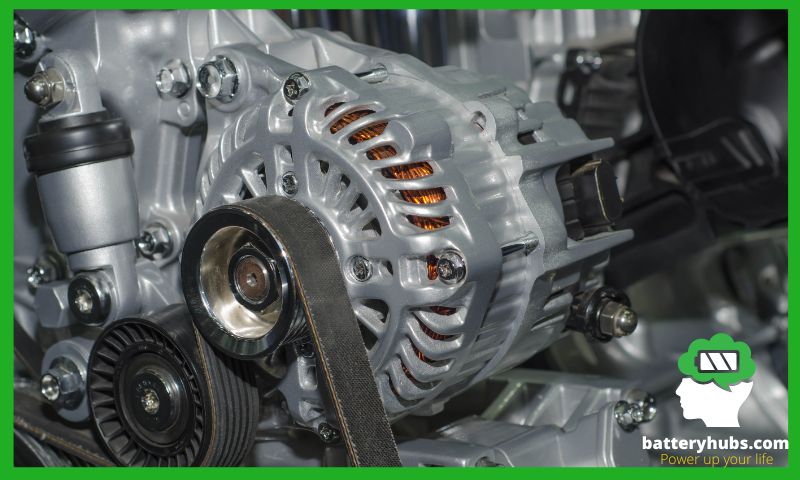
Your car’s alternator plays a crucial role in keeping your battery charged. If it’s not working properly, your battery could end up overcharged or undercharged, both of which can lead to sudden battery failure. As our friends at Advance Auto Parts put it, “A faulty alternator can fast-track a good battery to an early grave.”
Avoiding Leaving Electrical Components On
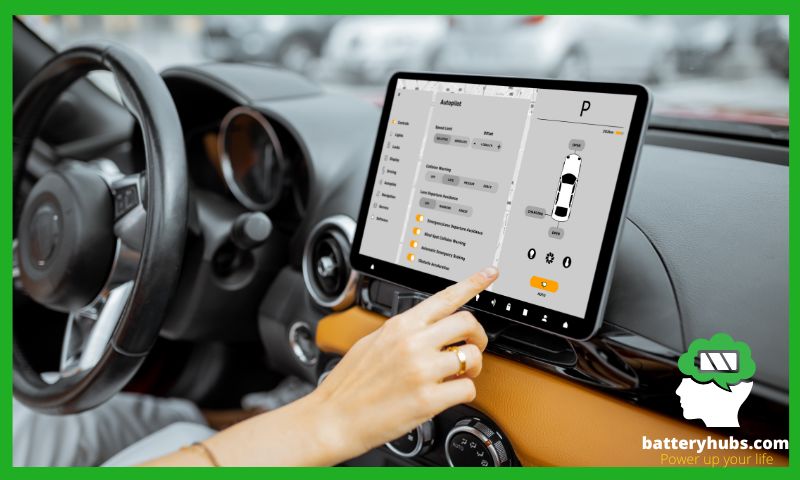
We’ve all done it – left the lights on overnight or forgot to turn off the radio. These seemingly small oversights can lead to what’s known as a parasitic drain, which can significantly deplete your battery’s charge. As ChrisFix explains in his video, even a small drain over time can lead to a dead battery.
Proper Storage and Care in Extreme Temperatures
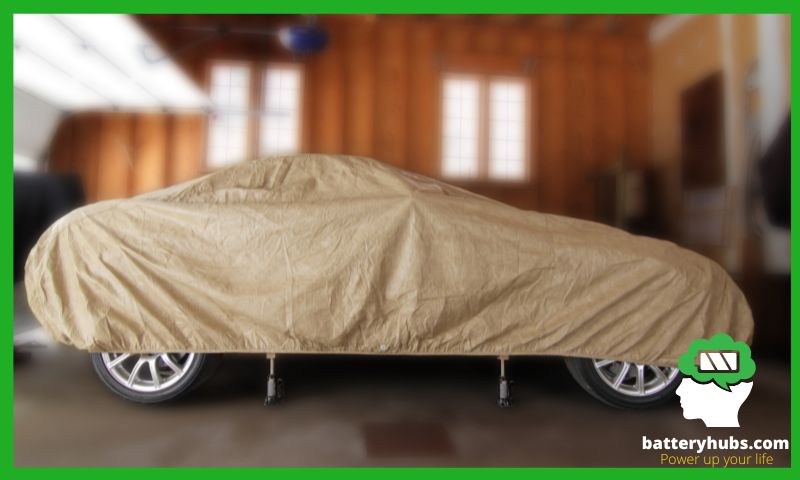
Extreme temperatures, both hot and cold, can wreak havoc on your car battery. In fact, according to BatteryStuff, high temperatures can cause the battery’s electrolyte to evaporate, leading to internal damage.
On the flip side, extremely cold temperatures can slow down the chemical reactions within the battery, reducing its ability to hold a charge. So, if you live in an area with extreme temperatures, consider using a battery heater or insulator to protect your battery.
Remember, a little bit of preventative maintenance can go a long way in keeping your car battery healthy and preventing sudden battery death. So, keep these tips in mind and your battery should serve you well for years to come!
How To Deal With A Dead Car Battery?
Now that we’ve discussed how to prevent sudden car battery death, let’s move on to what you can do if your car battery does die. One of the most common solutions is jumpstarting the battery. So, let’s dive into the steps to jumpstart a car battery.

Steps to jumpstart a car battery
Jumpstarting a car battery is a skill that every driver should have. It’s a simple process that can get you back on the road in no time. Here’s how you can do it:
- Find a Good Samaritan: You’ll need another vehicle with a working battery to jumpstart your car. Make sure both cars are turned off before you start.
- Connect the Jumper Cables: Attach one end of the red (positive) jumper cable to the positive terminal of the dead battery. Connect the other red (positive) cable to the positive terminal of the good battery.
- Ground the Circuit: Connect one end of the black (negative) jumper cable to the negative terminal of the good battery. Attach the other black clip to an unpainted metal surface on your car that isn’t near the battery.
- Start the Good Samaritan’s Vehicle: Let it run for a few minutes. This charges your dead battery slightly.
- Start Your Vehicle: If it starts, let it run to charge the battery further.
- Remove the Cables: Remove them in the reverse order that you put them on. Be careful not to let the clamps touch until they’re all off.
Remember, safety first. Always consult your vehicle’s manual for specific instructions.
When to consider a battery replacement?
Sometimes, a jumpstart might not be enough. If your car battery dies frequently, it’s time to consider a replacement. Here are some signs that you need a new battery:
- Frequent Jumpstarts: If you’re constantly needing to jumpstart your car, your battery is likely on its last legs.
- Slow Engine Crank: When you attempt to start the vehicle, the cranking of the engine is sluggish and takes longer than normal to start.
- Check Engine Light: The check engine light sometimes appears when your battery power is weak.
- Swollen Battery Case: If your battery case is bloated or swollen, it could be a sign that your battery needs to be replaced.
- Old Age: If your battery is more than 3-4 years old and you’re experiencing these symptoms, it might be time for a replacement.
Remember, a dead battery can be more than just an inconvenience. It can be a safety issue. Always ensure your battery is in good working condition to avoid being stranded or worse.
In the next section, we’ll discuss some common questions about car batteries and their sudden death. Stay tuned!
Conclusion
In this post, we’ve taken a deep dive into the world of car batteries, exploring why they can die suddenly, what causes this, and how to prevent it. We’ve also discussed how to deal with a dead car battery, including the steps to jumpstart a car battery and when to consider a battery replacement.
As someone with years of experience dealing with car batteries, I can tell you that understanding your car battery and how to maintain it can save you a lot of time, money, and stress in the long run. Regular maintenance, being mindful of your car’s electrical system, and knowing how to properly jumpstart a battery are all crucial skills for any car owner.
Remember, a little bit of preventative maintenance can go a long way in keeping your car battery healthy and preventing sudden battery death. So, keep these tips in mind and your battery should serve you well for years to come!
In addition to understanding your car battery, it’s also important to be aware of other battery-operated devices in your life. For instance, did you know that your smoke detector can still beep even after changing the battery? It’s true!
Just like with your car battery, understanding the ins and outs of your smoke detector can save you a lot of headaches. If you’re curious to learn more about this, check out our detailed guide on why your smoke detector still beeps after changing the battery.
In the end, the more you know about the batteries in your life, the better prepared you’ll be to handle any issues that come up. Whether it’s your car battery dying suddenly or your smoke detector beeping incessantly, having the right knowledge can make all the difference.
Remember, if you have any questions or need further information, don’t hesitate to reach out. We’re here to help you navigate the world of batteries, one beep at a time!
FAQ
What are the signs of a dying car battery?
A dying car battery often gives several signs before it completely fails. These include slow engine cranking, dimming headlights, and interior lights, frequent need for jump starts, and a noticeable swelling or bloating of the battery case. If your car exhibits these symptoms, it’s time to check your battery.
How long can a car battery last without the engine on?
A car battery can last between two and three months without the engine running. However, this duration can vary based on factors such as the battery’s age, its overall health, and the weather conditions. It’s always a good idea to start and run the engine periodically to keep the battery charged.
Can a car battery die while driving?
Yes, a car battery can die while driving, although it’s a rare occurrence. This can happen if the alternator, which charges the battery while the car is running, is not working properly. If the battery isn’t receiving a charge from the alternator, it can eventually run out of power and cause the vehicle to stall.
How do you keep a car battery from dying when not in use?
To keep a car battery from dying when not in use, consider using a trickle charger or battery maintainer. Avoid short trips that don’t allow the battery to fully charge, and if possible, disconnect the battery if you plan to store the car for an extended period. Regular battery checks and maintenance can also help prolong its life.
Can a car battery be too dead to jump start?
Yes, a car battery can be so depleted that it fails to jump start. If the battery is completely dead, it won’t have enough power to turn over the engine, even with a jump start. In this case, the battery will need to be replaced to get the car running again.
